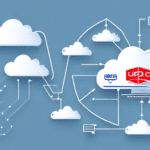Introduction to Easyship and Sendcloud
If you're running an online business and managing shipping logistics, you’ve likely come across Easyship and Sendcloud. Both platforms are designed to streamline shipping processes, helping businesses save time and money. This guide provides an in-depth comparison of Easyship vs Sendcloud, highlighting their features, pricing, integrations, and more to help you determine which platform best suits your business needs.
Pricing and Shipping Rates
Shipping Rates Comparison
One of the primary considerations for businesses when selecting a shipping platform is the cost involved. Easyship offers access to discounted shipping rates from a wide range of carriers without a monthly subscription fee, making it a cost-effective option for businesses with varying shipping volumes. In contrast, Sendcloud provides competitive pricing through discounted rates from carriers like DHL, UPS, and FedEx but requires a monthly subscription fee, which might be more suitable for businesses with consistent shipping demands.
Pricing Structure
Easyship charges a small fee per shipment, inclusive of all features and services, whereas Sendcloud offers tiered pricing plans based on the number of shipments per month, with additional fees for premium features such as parcel insurance. This distinction means businesses with lower shipping volumes may find Easyship more economical, while those with higher volumes might benefit from Sendcloud's scalable pricing.
Features and Functionality
Comprehensive Shipping Solutions
Easyship provides a one-stop-shop for shipping needs, including real-time shipping rates, automated customs documentation, tracking updates, and managing returns. It supports international shipping with access to over 250 shipping solutions worldwide, making it ideal for businesses looking to expand globally.
Automation and Efficiency
Sendcloud focuses on automating the shipping process with features like order synchronization across various e-commerce platforms, automated label printing, and parcel insurance. These automation capabilities are designed to simplify logistics for businesses with high shipping volumes and streamline operations.
User Interface and Integrations
User Interface
Both Easyship and Sendcloud offer user-friendly interfaces, but Easyship is often praised for its clean and intuitive design, facilitating easy navigation and setup of shipping preferences. Sendcloud also provides an organized interface, though some users may find it less flexible compared to Easyship.
Integrations
Easyship integrates seamlessly with numerous e-commerce platforms such as Shopify, WooCommerce, and Magento, as well as marketplaces like Amazon, eBay, and Etsy. Additionally, it offers integrations with major shipping carriers including DHL, FedEx, and UPS. Sendcloud also supports integrations with popular e-commerce platforms and provides an API for custom integrations, although its carrier integrations are more focused on local European carriers.
Customer Support
Effective customer support is crucial for resolving issues promptly. Easyship offers 24/7 customer support through live chat, email, and a comprehensive FAQ section, ensuring assistance is available whenever needed. Sendcloud provides responsive support during business hours and offers support in multiple languages, which can be advantageous for businesses operating in diverse regions.
Additionally, Easyship provides a range of educational resources, including webinars and guides, while Sendcloud offers a blog with helpful articles and tips for optimizing shipping processes.
Pros and Cons
Easyship
Pros:
- Access to discounted shipping rates from various carriers
- Comprehensive shipping solutions, including tracking, customs clearance, and automated updates
- Easy-to-use and intuitive interface
- Integrates with over 250 shipping solutions worldwide
- Global shipping to over 220 countries and territories
Cons:
- Limited automation features compared to Sendcloud
- No parcel insurance coverage available
Sendcloud
Pros:
- Access to discounted shipping rates from multiple carriers, including DHL, UPS, and FedEx
- Focused on automation features to streamline shipping processes
- Provides parcel insurance coverage
- Responsive and multilingual customer support
- Offers a free trial period for businesses to test the platform
Cons:
- Requires a monthly subscription fee
- Less flexibility and customization compared to Easyship
- May not offer as many carrier options as some other platforms
Choosing the Best Platform for Your Business
Selecting between Easyship and Sendcloud depends on your specific business needs:
- Easyship is ideal for businesses seeking a comprehensive shipping solution with extensive carrier options and global reach. Its pay-per-shipment pricing model is beneficial for those with fluctuating shipping volumes.
- Sendcloud is better suited for businesses that prioritize automation and have consistent shipping volumes, especially within Europe. Its subscription-based pricing may offer better value for high-volume shippers.
Consider factors such as your shipping volume, geographic reach, desired features, and budget when making your decision. Additionally, reviewing case studies and expert opinions can provide further insights into how each platform can support your business growth.
Case Studies and Expert Opinions
Successful Implementations
Many businesses have leveraged both Easyship and Sendcloud to enhance their shipping operations. For example, an Australian furniture e-commerce store increased sales by utilizing Easyship’s extensive shipping options to offer flexible delivery choices to customers worldwide. Meanwhile, a Dutch webshop specializing in personalized products benefited from Sendcloud’s automation features, which streamlined order management and label printing processes.
Expert Insights
Industry experts suggest that Easyship is a more comprehensive solution for businesses requiring diverse shipping options and international capabilities. In contrast, Sendcloud is recommended for businesses looking to enhance operational efficiency through automation. Both platforms receive praise for their competitive pricing and responsive customer support, making them strong contenders in the shipping solutions market.
Ultimately, the best choice depends on aligning the platform's strengths with your business objectives and operational requirements.
Conclusion
Both Easyship and Sendcloud offer robust solutions for managing e-commerce shipping needs. Easyship excels in providing a wide range of shipping options and global reach, making it ideal for businesses aiming to scale internationally. Sendcloud, with its focus on automation and efficiency, is well-suited for businesses seeking to streamline their shipping processes and improve operational workflows.
By evaluating your business size, shipping volumes, desired features, and budget, you can make an informed decision that enhances your shipping operations and supports your overall business growth.




















